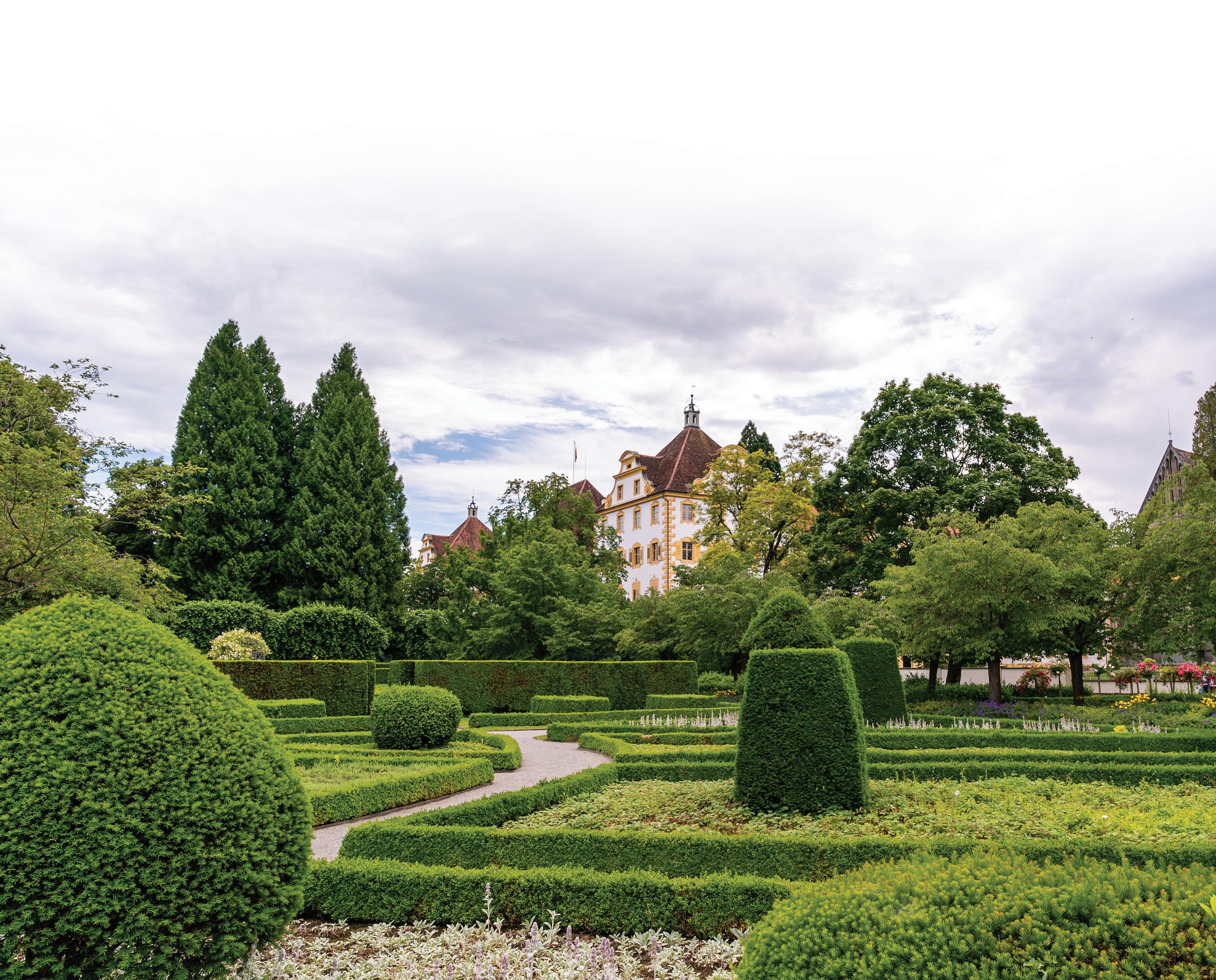
4 minute read
Salem to Marlborough and Back Again
Hans von Sponeck (SU 1957) says, unequivocally, that his short time as an exchange student at Marlborough are days he has remembered and recalled his whole life.
It was a day close to the end of the summer term of 1957 when I walked across the courtyard that a long time ago had been part of a Cistercian monastery. In the 1920s, it had become the boarding school Salem in southern Germany. One of my teachers saw me, stopped and said, ‘I was looking for you. The Headmaster wants to see you.’ I did not waste any time and went straight to his office. The Headmaster, Prince George of Hanover, looked at me with a smile that I could only interpret once he began to speak. ‘I have decided not to send you to Gordonstoun, but I have agreed with the Master of Marlborough that you could spend time at his college.’ All of this came as an enormous surprise. Ten weeks later, equipped with a letter from Salem’s Headmaster to Marlborough’s Master Thomas Garnett (Master 1952-61), I travelled to London. It was the first air travel in my life and the first trip to a destination outside of continental Europe. I do not remember exactly how I reached Marlborough, except that I took a train from Paddington. I think I was too excited, too tired and also a bit confused.
It did not take long to comprehend how the worlds of Marlborough and Salem differed. I had come from a co-educational to an all-boys school; from a school where shorts, skirts and pullovers were the school uniform for all seasons, to a school of jackets, ties and long trousers. I had not been aware of the existence of shirts with detachable cuffs and collars, which were available from Marlborough’s local clothing store. Salem and Marlborough both had good sporting facilities, but only Marlborough had an outdoor pool. Skinny dipping was one of the many new English phrases I learnt; it also became a new habit. I chuckled with my new friends about the story that made its rounds about an old woman who had complained to the school about students swimming in the nude, but, when confronted, had to admit that she could only see these boys when using binoculars. Kippers, spuds and treacle tarts may not be culinary delights for today’s youth, but they were new to me coming from a German boarding school where food was scarce, and they were totally fine. Summerfield became my temporary home. Housemaster Frederick Coggin (CR 1926-62) was my mentor, and I will fondly remember him for several reasons.

The outdoor pool The Bradleian

The foreign student from Germany could see him at any time, and with any issue, to receive his counsel. I was grateful for that. I also remember him for his wonderful and absolutely extraordinary sense of forgetfulness. On one occasion, he decided to drive to London. Once he had done his errands, he bought a train ticket back to Marlborough and the next morning, upon finding an empty garage, he called the police to report that his car had been stolen. Of course, the story had a good ending. One day, I was walking to the dining room, it was raining, and I saw Coggin in the distance holding an unopened umbrella. Coggin was known to be a very hospitable person, however, it just so happened that he had invited people for dinner at home but then decided to spend the evening at the local cinema. Let me add one more story. My parents had sent a cheque in the amount of £500 to cover the pocket money Coggin was to give to me. Much later, when I was back in Salem, Coggin wrote to my parents returning the cheque indicating that it had never been cashed. He ignored my parents’ insistence that I had received the money. This raises the uncomfortable question whether, in 2021, I still owe Marlborough College £500! My days at Marlborough led to many friendships. My peers patiently accepted my limited English language skills. To many of them I was a European ‘local’. Many of them had come to Marlborough from the vast expanse of the British Empire. They would spend their holidays with their families in Sarawak, Bechuanaland, the Virgin Islands, Singapore, Kenya, India and other places I had never heard about. Their airline was the BOAC, mine was the BEA. As a young German, I was fascinated by the geography teacher’s global knowledge. I truly learnt a lot in Marlborough. There were also failures, for example in cricket. I was condemned eternally to fielding – I did not deserve to be a batsman, and rightly so. As a Sports Captain in Salem, I had wanted to be a member of Marlborough’s athletic team. I was grateful that the school shared my perception of being totally unsuited to a cricket career. Instead, I was given a chance to compete for Marlborough in running and jumping events at Charterhouse, Oxford, Cambridge and elsewhere. There was an incident in my Marlborough sport career that I, and I suspect others, will never forget. At one long-jump competition, I was rushing towards the take-off board when I heard, ‘And here comes Deutschland, Deutschland über Alles.’ I missed the board and joined all those who had a good laugh. Today, 64 years later, I still chuckle at that occasion.
The Marlborough of 1957 opened a big window by letting me have a glimpse of a world that I wanted to explore further, and that I did!
For this, I am grateful.











